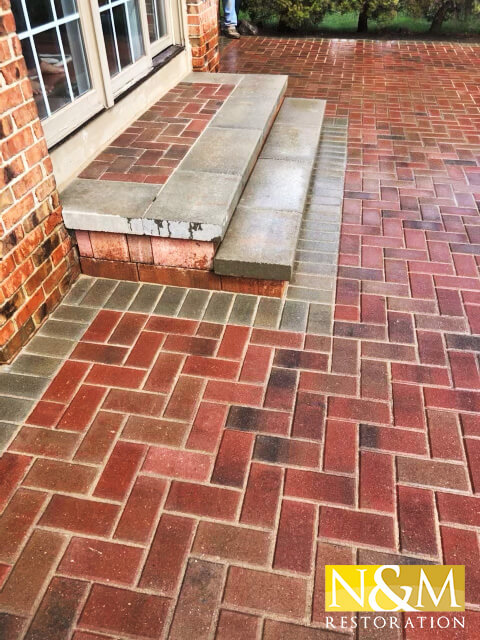BRICK PAVERS – WATER GOES AROUND THE BRICKS
There are three categories of brick pavers: permeable, porous, and pervious. For the purpose of this guide, we will focus on the permeable and pervious options.
Clay or concrete is the most permeable pavers. Furthermore. they do not absorb water. This allows the water to flow into nearby drainage systems. Additionally, this is beneficial for residential driveways or paths on hills. The water is able to drain away from the property as quickly as possible.
PERVIOUS PAVERS – WATER GOES THROUGH THE BRICKS
Pervious pavers absorb and filter rainwater. They have enhanced porosity on the surface to encourage water to travel through the bricks. In addition, pervious pavers have joints around them, just like permeable bricks. While water is able to flow through the joints, it can also travel through the pervious bricks.
Pervious pavers can reduce pollutants in runoff water. The bricks trap dirt and debris that would otherwise get into the drainage systems. This extra layer of filtration is particularly beneficial in high-traffic areas, such as sidewalks and community parks. Install your pervious brick pavers in the right places. They can help improve water quality throughout a community.
CHOOSING THE RIGHT PAVERS FOR RESIDENTIAL AND COMMERCIAL APPLICATIONS
Should you choose permeable pavers or pervious pavers? The answer depends on the application. Permeable pavers are going to be the best fit for your brick paver patio or driveway for your home. Water will drain away from these areas, just like it would on a smooth concrete surface. Pervious pavers are best for most commercial applications, where the pavers cover a large surface and will encounter a large volume of traffic.
For help deciding which brick pavers are right for you, contact the experts at N&M Restoration. Our brick paving company is proud to serve Oakland County, Macomb County, and surrounding areas in Metro Detroit MI. Call (248) 924-9798 for your free, no-obligation consultation.

